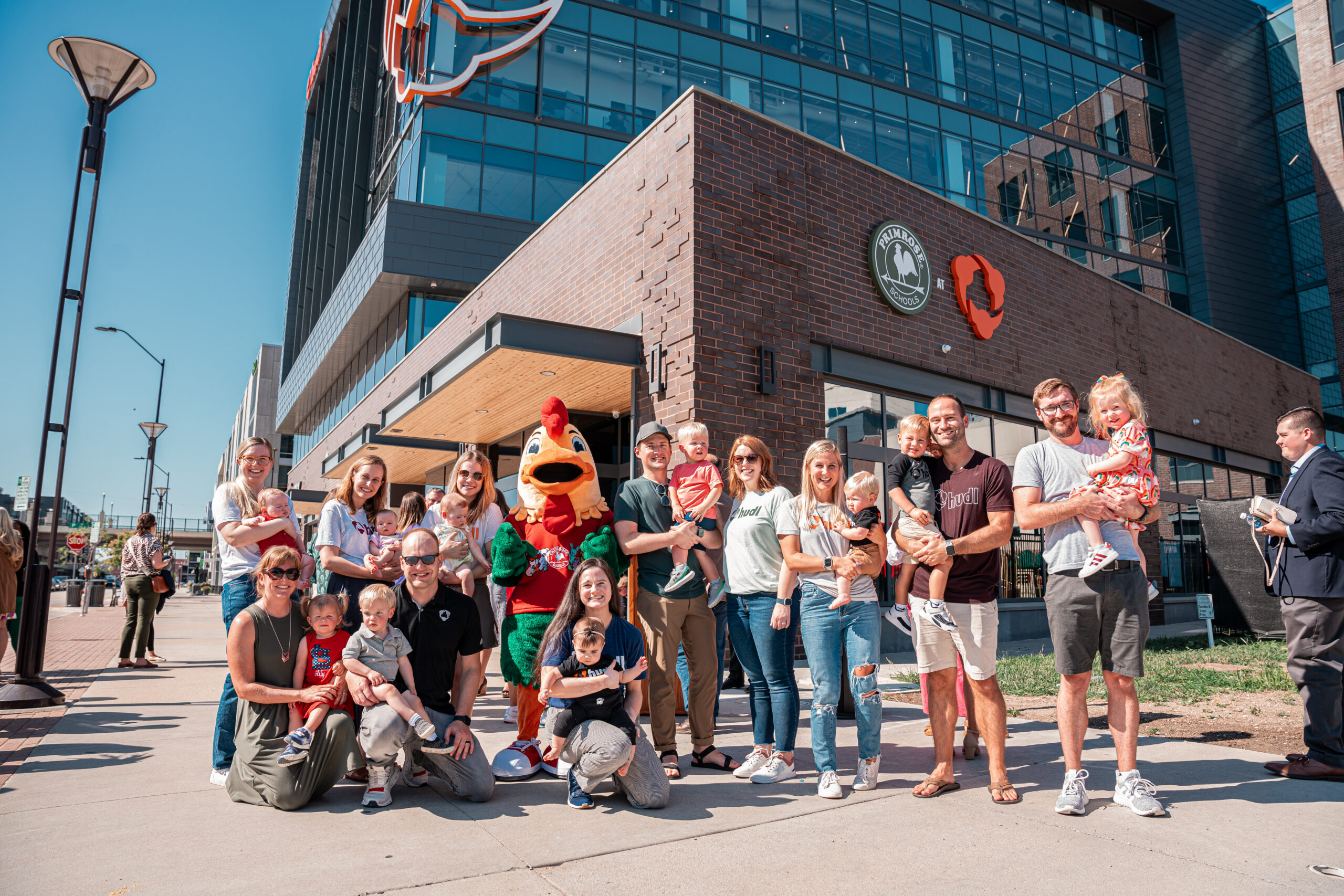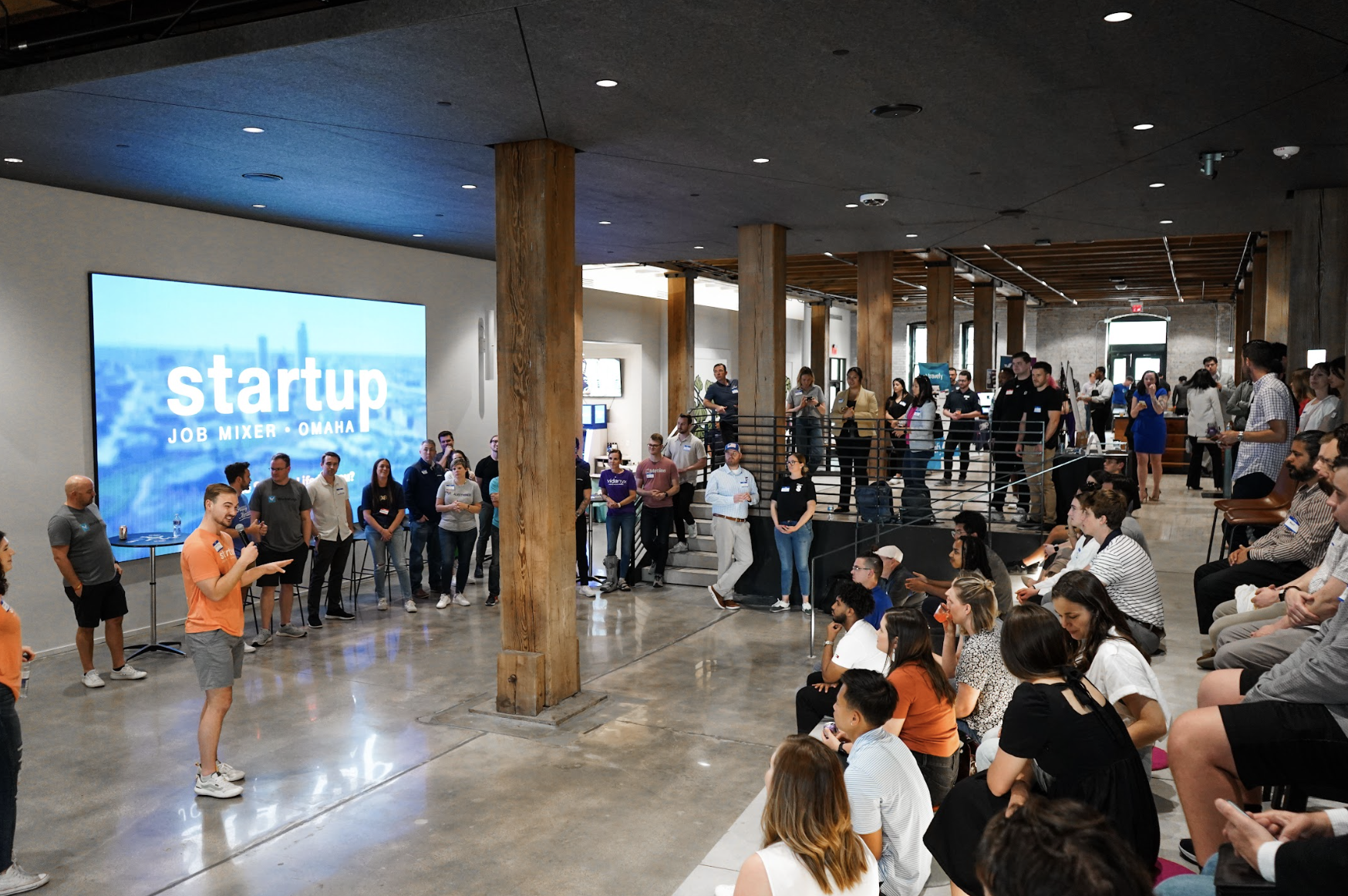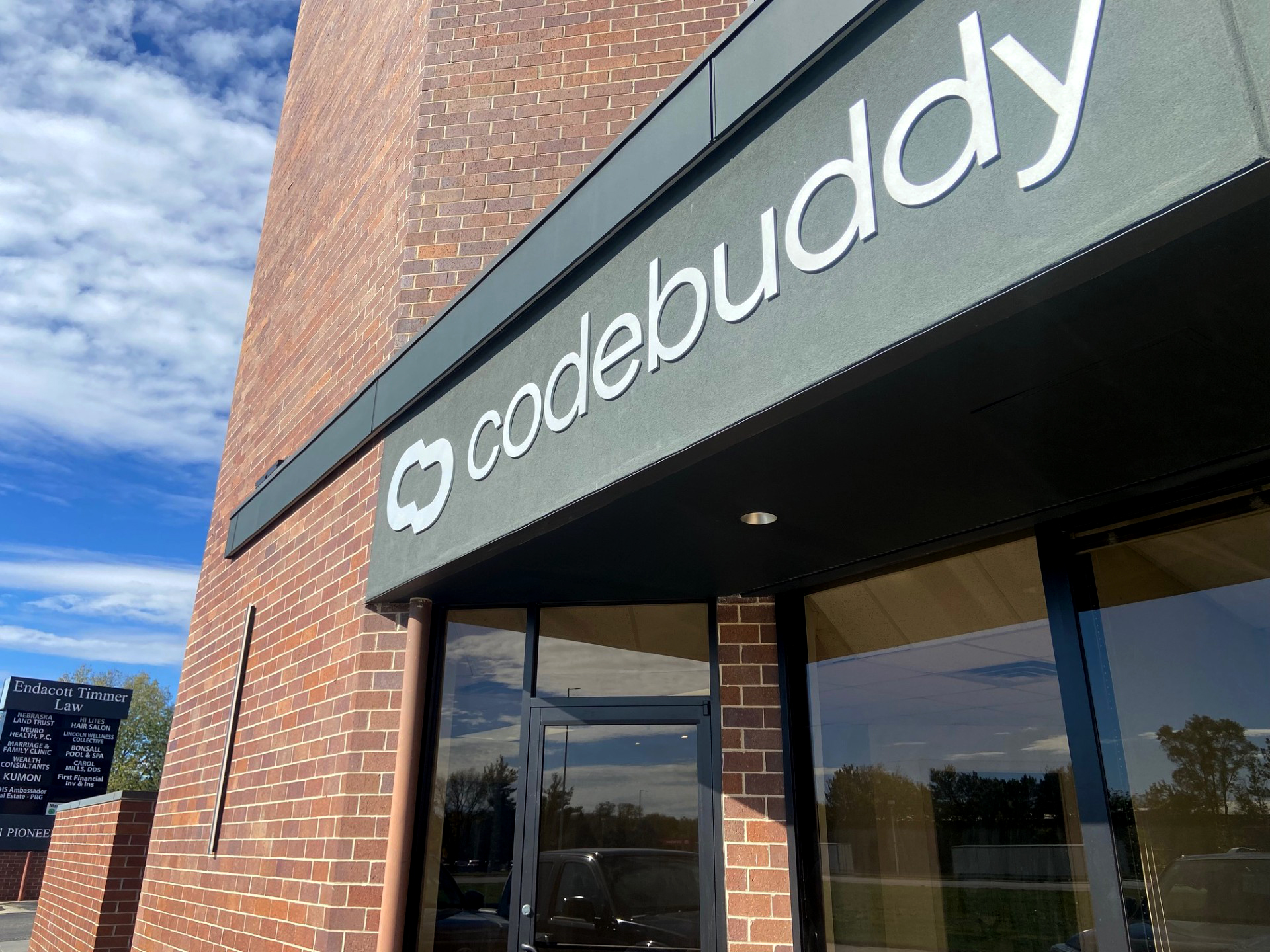Millions of dollars in pandemic-era funding for Nebraska child care providers will expire at the end of September, which could further pinch working parents who have been key to economic growth in 2022 and 2023.
“Affordable, available and quality childcare is directly linked to workforce participation,” according to a Nebraska Chamber of Commerce and Industry policy brief from 2022. “Childcare is essential for working parents to enter, re-enter and stay in the workforce as our economy recovers.”
Several Nebraska companies are using creative solutions to address their employees’ child care challenges as a way to attract and retain workers in the state.
The opening of an on-site child care center at Hudl and providing access to vetted on-demand backup caregivers for staff at QLI via Swishboom are two examples of how companies are increasing support for working parents with the hope that other employers will follow.
A looming child care crisis
Nebraska has already lost almost 10% of the state’s child care programs since the beginning of the COVID-19 pandemic, according to a report from the Buffett Early Childhood Institute.
“Much-needed federal rescue funds helped providers meet payroll, offer additional slots to children and families, and keep their doors open. The loss of these funds could cause more child care programs to close, disrupting families and the economy,” the report says.
A majority of the estimated $312.1 million in federal funds allocated to support the child care industry in Nebraska will expire as of Sept. 30, 2023.
“It’s not just an Omaha problem — there is a child care crisis happening right now in the United States,” said Kellee Mikuls, founder and CEO of Swishboom — a mobile app that connects families in Omaha with on-demand childcare services via its network of vetted local sitters.
Mikuls said the COVID-19 pandemic exposed cracks in an already unsustainable child care system. Low wages and thin profit margins mean few high quality options for families. “It’s just not an industry people are flocking to,” she said.
To support their staffs, Nebraska employers such as QLI and Hudl are taking note and exploring ways to make high quality child care more accessible.
Connecting with trusted caregivers on-demand
QLI, a nonprofit that provides rehabilitation services for people with brain or spinal cord injuries, partnered with Swishboom to provide free access to the platform for any of their approximately 425 employees for one year.
“We knew the child care issue is everywhere,” said QLI Director of Operations Kiley Armitage. “It can be expensive, hard to find a trusted carer or when a caregiving family member gets sick.”
Armitage said the leadership team considered offering child care stipends or an afterschool program, but ultimately decided to contract with Swishboom instead because it more directly addressed the challenge they were trying to solve for their team: Finding a trusted caregiver even if it’s last-minute.

Providing on-site child care
Primrose School at Hudl opened in July as an on-site childcare provider for Hudl’s headquarters in Lincoln. The Lincoln office houses around 600 of the company’s 3,500 global workforce.
An annual engagement survey revealed a desire for more benefits for existing and soon-to-be parents at Hudl, said Mark Ketcham, VP of operations at Hudl.
The company was started in 2006 by recent college graduates, and their peers made up a majority of their original workforce, Ketcham said. Over time the team has evolved. So have the needs of team members, he said.
Located on the ground floor of Hudl’s headquarters in Lincoln, Primrose School at Hudl features 7,000 square feet of indoor learning and purposeful play space, an outdoor area and multiple age-specific classrooms to serve infants through pre-K.
“It’s hard enough being a first-time parent, but as a working parent, Hudl makes it easier on me and my family. I appreciate that I can take advantage of this benefit and better balance growing in my profession without sacrificing being a great mom,” said Hudl employee and Primrose parent Marilyn John.
Ketcham said Hudl wants to make it more appealing for team members to come into the office to collaborate in person as the post-COVID work landscape continues to evolve. They hope that providing on-site child care at a subsidized rate for employees makes that decision easier, he said.
Attracting & retaining workers in a tight labor market
Both Hudl and QLI hope that providing child care solutions as part of their benefits package will help attract and retain talent.
Hudl is partnering with First Five Nebraska to conduct a multi-year study of the impact Primrose School at Hudl has on employee engagement, satisfaction and retention, Ketcham said.
“We want to be able to tell our story and show others what this can provide,” Ketcham said. “We have already seen tremendous support from those using [the center], including nursing mothers.”
Armitage at QLI said the new Swishboom benefit is highlighted in new employee onboarding, and current employees are starting to download the app. “It’s just nice to have the peace of mind that there’s a back up plan.”
Mikuls said she’s having conversations with multiple local companies that are exploring ways to ensure that their team members, especially women, don’t have to leave the workforce due to child care challenges.
Ketcham agreed that employers and employees will benefit from setting working parents up for success. He added, maybe an on-site child care center isn’t feasible, but what about a discounted rate at a preferred provider?
“It’s a big problem to solve, but we can’t just be intimidated by it and be paralyzed,” Armitage said. “We have to do something.”



